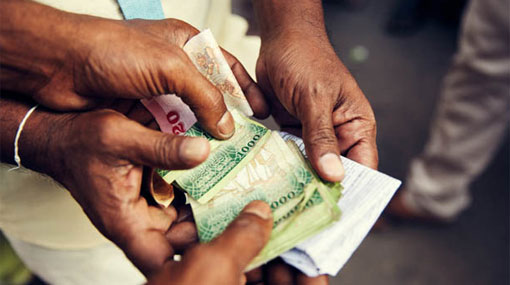Sri Lanka rupee traded around Rs.369.55 on Monday 11 while it stood at Rs. 326 to the US dollar during the day on Friday (08), dealers said.
At the monetary policy review meeting later on Friday 11, the Central Bank tightened the policy by increasing the rates by 700 basis points.
The Standing Deposit Facility Rate (SDFR) and the Standing Lending Facility Rate (SLFR) of the Central Bank by 700 basis points to 13.50 per cent and 14.50 per cent.
New Central Bank Governor Dr. Nandalal Weerasinghe on Friday faulted the way the exchange rate was managed by his predecessor saying the fixed rate was too long whilst on the other hand free float was not credible in terms of timing and sequencing.
He said that the rupee was artificially protected for too long with a fixed maximum rate thereby incentivising the black market.
He implied that if a fixed rate was to be maintained it should have been gradually adjusted upwards in tandem with the market conditions.
“The root cause of the Balance of Payment crisis should have been properly addressed,” the new CBSL Chief opined, adding that the failure made the sudden free float less credible in the eyes of the market.
It was pointed out that free float could have been better sequenced and timed and implemented after further tightening of the monetary policy thereby curbing demand as well as imports, a more prudent fiscal policy, and upward adjustment of prices of fuel and other utilities and starting talks with the International Monetary Fund (IMF).
In fact, the excessive depreciation of the exchange rate amidst the lacklustre performance in foreign exchange inflows, according to the Monetary Board statement on Friday warranted certain policy actions.
The result was the announcement of the highest ever increase of policy rate by 7% on Friday in a show of the tightest monetary policy stance in the history of CBSL to ensure greater macro-economic stability.
The Monetary Board said the move will help raise the cost of funds, thereby containing the expansion of money and credit; inducing the return of excessive currency in circulation to the banking system; eliminating interest rate anomalies; easing the pressure on the exchange rate and containing the build-up of demand pressures in the economy.
Dr. Weerasinghe also noted that the apparent “state of denial” by the previous Governor did not help improve the macroeconomic situation. Neither did the issuance of multiple gazettes to deal with the issue of foreign currency and reserves.
